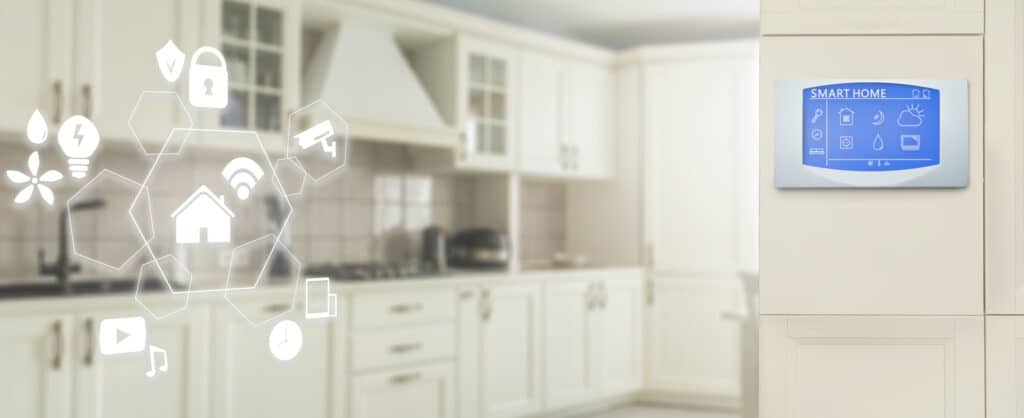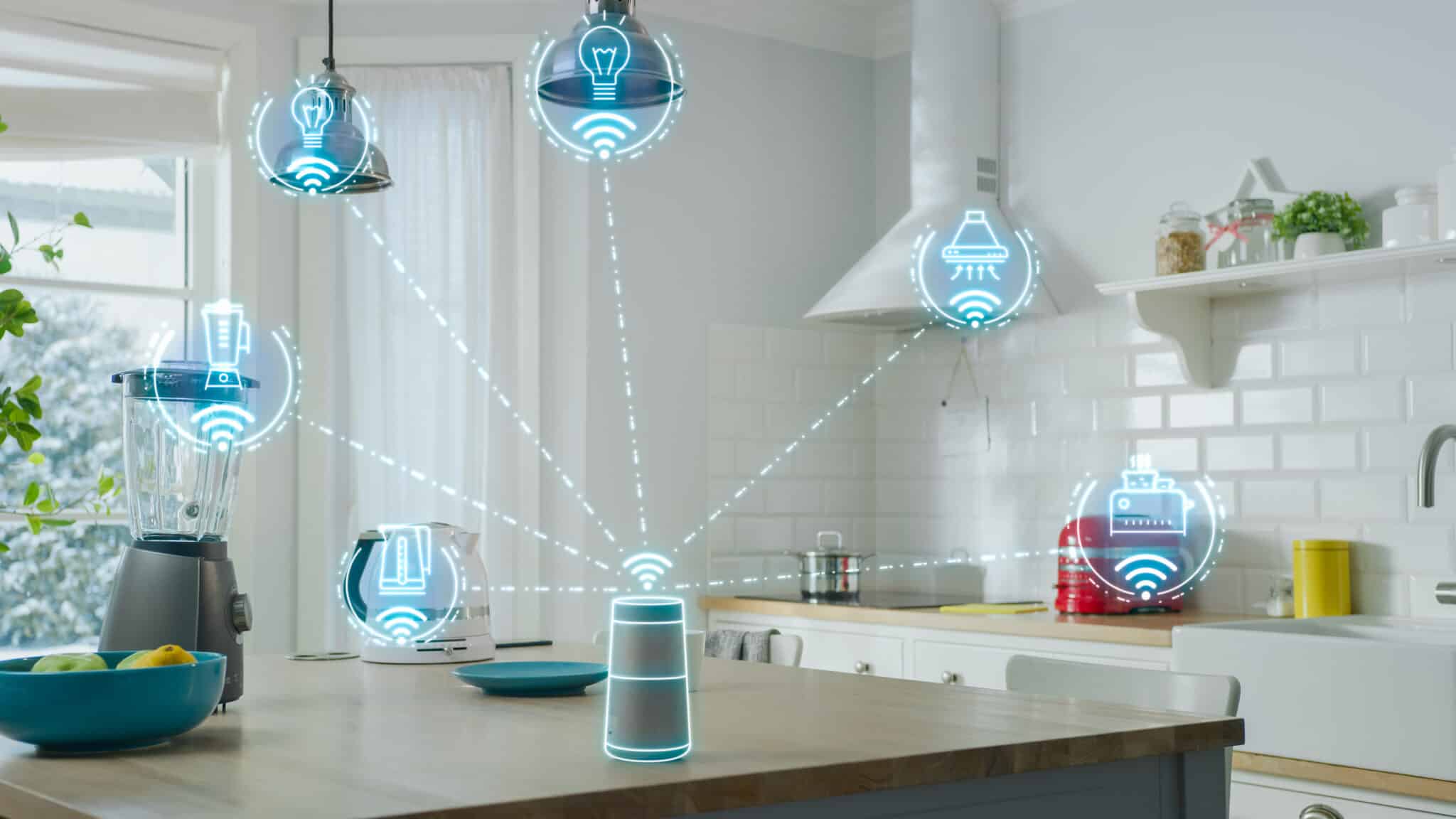
Smart Home Integration: Must-Know Tips And Advantages
Smart Home Integration makes daily life easier by automating lights, climate control, and security. You can control all these things easily through popular smart home systems. Picking the right system and setting up a strong network is key to getting the most out of home automation.
Choosing the Right Ecosystem for Smart Home Integration
Feeling overwhelmed by all the options for Smart Home Integration in Myrtle Beach, SC?
Picking the right system can seem like solving a puzzle, but it doesn’t have to be tough.
Start by checking out popular smart home systems like Google Home, Amazon Alexa, and Apple HomeKit.
These platforms are easy to use and work well with most devices.
Think about what you need—like security features, entertainment control, or energy-saving options.
Make sure the system you choose works with your current gadgets.
Good smart home integration means you can control things like lights, climate, and security with one system.
Pick a platform that can handle all these things smoothly.
Fact: Home automation includes not just internet-enabled devices but also anything controllable via wireless signals.
This means even old-school RF remotes can be part of your smart home setup.
Finally, think about the future.
Choose a system that can grow with you, supporting any upgrades or new devices you might add later.
Making the right choice now will save you a lot of trouble down the line.
Start Smart Home Integration today to build the home of tomorrow!
Why Smart Home Integration is Essential
Ever thought about how smart home integration could make life easier?
Imagine waking up and having your home adjust the thermostat, brew your coffee, and open the blinds—all without you doing a thing.
That’s the power of linking smart devices.
But why is it so important?
First, smart home integration streamlines daily routines.
Each device, like smart thermostats and lighting systems, can work together seamlessly.
Picture all your gadgets working in sync, adapting to your needs all day.
When you leave home, the lights turn off, the security system activates, and the temperature changes to save energy.
Next, integrating smart devices is super convenient.
Automating daily tasks saves time and cuts the stress of managing many gadgets.
You can control everything with one app or voice command, making life much easier.
Lastly, setting up a smart home in Myrtle Beach, SC isn’t just about high-tech gadgets.
“Smart home” includes any device you can control or monitor wirelessly, not just those with the Internet.
This means more ways to improve your living space.
By embracing smart home integration, you’re not just upgrading your home; you’re stepping into the future of living.
The Role of Ocean Wave Sensors in Smart Home Integration
Ever thought about how ocean wave sensors could boost your smart home?
Ocean wave sensors give detailed info on wave movement and conditions, which is super helpful for homes in coastal spots like Myrtle Beach, SC.
With these sensors, you can keep an eye on ocean conditions in real time.
One big perk of ocean wave sensors is how they help with energy efficiency.
They can work with renewable systems like solar panels to determine energy storage and use.
Picture your home choosing when to store or use solar energy based on wave activity, which means optimizing energy usage for you.
Ocean wave sensors also up the safety and preparedness game.
In coastal areas like Myrtle Beach, SC, knowing wave patterns and possible tide changes is key.
By adding these sensors to your Smart Home Integration, you get alerts about unusual wave activity, so you can take action in time.
In short, ocean wave sensors are a great add-on for any Smart Home Integration, especially in places like Myrtle Beach, SC.
They offer real-time monitoring that boosts security and convenience for homeowners.
Setting Up Your Smart Home Network
Feeling confused by all the choices for setting up your Smart Home Integration network?
Getting this right is key for a smooth and easy smart home experience.
First, a strong Wi-Fi connection is crucial for effective Smart Home Integration.
Many devices need this connection to work well.
If your Wi-Fi signal is weak, think about getting a mesh Wi-Fi system to cover your whole home.
Next, decide between Bluetooth, Wi-Fi, and smart hubs for your devices.
Bluetooth is simple and uses less power but has a limited range.
Wi-Fi covers a wider area and is faster but can put a strain on your network.
Smart hubs, like Zigbee or Z-Wave, offer strong solutions by making dedicated channels, thus easing Wi-Fi congestion.
Your Smart Home Integration network is more than just connectivity; it’s about building an efficient system that supports your devices.
By focusing on these main points, you’ll set up a smart home that’s both connected and reliable.
Happy automating with Mister Sparky of Myrtle Beach, SC!

Smart Home Standards You Need to Know
Ever wonder how different smart home devices work together so smoothly?
Knowing about smart home standards is key to making sure various gadgets communicate well.
There are a few common standards to keep in mind: Zigbee, Z-Wave, and Wi-Fi.
Each one has its own role in your smart home setup.
Zigbee and Z-Wave are popular because they use little power and offer reliable mesh networks.
Zigbee is an open standard, good for connecting lots of devices.
Z-Wave provides a secure and strong network, which is great for home security systems.
Wi-Fi is the most well-known.
It offers high-speed communication and is perfect for devices that need lots of data, like cameras and smart TVs.
But, it uses more power than Zigbee or Z-Wave.
Making sure your devices are compatible is crucial for smooth smart home integration.
Gadgets need to follow the same standard to talk to each other.
When picking smart home products, choose ones that support multiple standards.
This gives you flexibility and keeps your setup future-proof.
By understanding these standards, you can build a more efficient smart home, making sure all your devices work well together.
If you live in Myrtle Beach, SC, there are plenty of local resources to help you with Smart Home Integration steps and setups specific to the area.
Installing and Setting Up Smart Home Devices
Ready to turn your home into a smart haven?
Here’s a simple guide to installing and setting up smart home devices.
First, pick your main focus: security system, lighting, or thermostat.
Check the power sources and make sure your Wi-Fi is stable.
For smooth Smart Home Integration, choose a home automation system that fits your needs.
For example, Mister Sparky of Myrtle Beach, SC, often suggests devices that work with multiple standards for more flexibility.
Start with the installation.
Follow the instructions from the manufacturer closely.
Usually, you connect the device to your home network using its app.
Place your smart devices in the best spots—put security cameras at entry points and place the thermostat in a central spot for best climate control.
Next is the setup.
Use the app to link your devices and make sure they talk to each other.
The app will usually guide you to set up initial settings like alerts or schedules.
Test each device to make sure it works.
If you run into problems, the user manual or online forums can help.
Mister Sparky of Myrtle Beach, SC, suggests automating your system after setup.
Smart Home Integration is simplified when you create routines that fit your lifestyle for maximum ease and security.
Remember, the time you spend now will lead to more comfort and efficiency later.
Automating Your Smart Home
Ever thought about how Smart Home Integration can make your life easier and better in Myrtle Beach, SC?
Grouping devices for better control is a big help.
Imagine your lights, thermostat, and TV working together with no need to touch anything.
By grouping devices, a single command can start a series of actions.
Creating custom routines and automation is also great.
Picture this: you wake up, your blinds open by themselves, your coffee maker starts brewing, and your morning news plays softly.
Smart Home Integration takes away the hassle of daily tasks, making things more efficient and easy.
You can schedule lights to come on at sunset or set your thermostat to adjust based on your routine.
The options are endless.
Mister Sparky of Myrtle Beach, SC can help you with these features, making it simple and stress-free.
It not only makes you more comfy but also helps save energy, which is good for your lifestyle.
Embrace smart living and experience the future today with professional help right at your home, ensuring seamless Smart Home Integration!
Keeping Your Smart Home Safe
Worried about your smart home’s security? It’s key to protect your smart devices from threats.
Start with strong, unique passwords for each device.
Don’t use default settings—hackers can easily break in.
Keep your devices up to date.
Make sure the firmware is updated to fend off new security risks.
An updated device is a safe device.
Think about setting up a separate network for your smart home gadgets.
This keeps them apart from your main network and reduces risk.
Hide your Wi-Fi name and use WPA3 encryption for better security.
Check your devices regularly.
Look for any strange activity or unauthorized access.
Use two-factor authentication (2FA) for an extra layer of safety.
Be careful with third-party apps.
Use trusted sources only and check app permissions to avoid sharing too much data.
Mister Sparky of Myrtle Beach, SC suggests using these tips to boost your home’s security.
In the world of Smart Home Integration, staying informed and proactive keeps your family safe.
Troubleshooting Common Smart Home Integration Issues
Are you having trouble with your smart home devices? Mister Sparky of Myrtle Beach, SC can help!
Smart homes can have glitches, but many issues are easy to fix.
Here’s how to tackle common problems.
Fixing Connectivity Problems
Is your smart device not connecting to Wi-Fi?
First, check that your router has a strong signal.
Still not working?
Restart both the router and the device.
A simple reset often solves the problem.
Make sure your Wi-Fi uses the latest security.
Solving Device Miscommunication
Are your smart devices not syncing?
This might be due to different communication standards—devices using Zigbee, Z-Wave, or Wi-Fi may not work well together.
Tip: Set up a hub that supports multiple standards.
This makes Smart Home Integration easier.
Another tip is to regularly check for software updates.
Firmware updates fix bugs and improve compatibility.
Pro Tip: Do updates during low-traffic times to avoid interruptions.
Lastly, ensure all devices are within Wi-Fi range.
Weak signals can cause erratic behavior.
By following these tips from Mister Sparky of Myrtle Beach, SC, you can keep your smart home running smoothly, making life easier and more enjoyable.
Integrating Smart Home Tech in Myrtle Beach, SC
Are you thinking about adding smart home gadgets but worried about how they’ll cope in coastal places like Myrtle Beach, SC?
Smart Home Integration in a coastal area has its ups and downs.
Coastal climates can be tough on electronics due to humidity, salt air, and floods.
But with careful choices and setup, you can build a robust and efficient system.
Humidity is a big factor.
Make sure your devices are designed for humid environments to avoid problems.
Choose weatherproof models, especially for outdoor gear.
Salt air can cause corrosion, so pick materials that can handle these conditions.
Flooding is another issue in Myrtle Beach.
Use smart flood sensors to catch water problems early.
Elevate key hubs and devices to keep them dry.
Smart Home Integration can also help with energy efficiency, automatically managing energy use—great for sunny coastal areas.
Smart Home Integration in Myrtle Beach isn’t just about handling problems; it’s about making the most of local perks.
With Mister Sparky of Myrtle Beach, SC, you can be sure your smart home setup will work great despite the coastal challenges, boosting both your home’s safety and comfort.
Future Trends in Smart Home Integration
Have you ever wondered what the future holds for smart homes?
As tech evolves, some exciting trends are set to change Smart Home Integration.
One to watch is artificial intelligence (AI).
AI systems will get smarter, learning and predicting what you need without you asking.
This will make homes more efficient and secure.
Another trend is voice-controlled smart homes.
With devices like Amazon Alexa and Google Home becoming common, using voice commands will grow.
Imagine controlling lights, temperature, and entertainment just by talking.
Interoperability will be key too.
Future smart homes will ensure different devices and brands work well together.
This fits with the move towards renewable energy.
Smart homes will decide on their own how to store or use energy, helping the planet.
In a coastal city like Myrtle Beach, SC, smart water management systems will be important.
These systems will keep an eye on ocean conditions and manage water use, helping homes deal with environmental issues.
By embracing these advancements, Smart Home Integration will not only get more efficient but also offer a more connected and snug living space.

FAQ
-
Can smart home devices make my daily routines easier?
Yes! They can turn lights on and off, tweak the thermostat, and even start your coffee maker. Picture walking into your home after a long day, and everything is just right, thanks to Smart Home Integration.
-
Is it hard to set up smart home tech in Myrtle Beach, SC?
Myrtle Beach, SC, has unique coastal challenges like humidity and salt air. But with good planning and the right devices, you can have a smart home that handles the elements.
-
How can I keep my smart home devices secure?
Use strong, unique passwords, enable two-factor authentication, and update your device firmware regularly. These steps help protect your system from unauthorized access.
-
What if my smart home devices stop talking to each other?
First, check your Wi-Fi and make sure all devices are on the same network. Restarting the devices and your router can fix many issues. If the problem continues, check the device’s manual or contact support.
-
Are there environmental benefits to Smart Home Integration?
Yes. Smart Home Integration can boost energy efficiency by managing energy use on its own, which can reduce your bills and carbon footprint.

